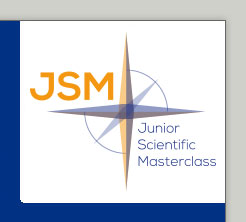Edit researchproject
In this email you'll find a link that you can use to edit the project on the website.
Only researchers that belong to the project can edit their project.
Please use the selectlist below to indicate which researcher you are. When you click the button 'Edit project', an email will be sent to the email of the selected researcher.
Project properties
| Title | Mechanical ventilation in a nursing home setting, a single centre's fifteen year experience. |
|---|---|
| Keywords | mechanical ventilation nursing home |
| Researchers |
Prof. dr. S.U. Zuidema Prof. dr. P.J. Wijkstra dr. W. Drenthen drs. G. Huisman |
| Nature of the research | Retrospective cohort / file research |
| Fields of study | pulmonology rehabilitation intensive care |
| Background / introduction |
|---|
| In the Netherlands, long-term mechanical ventilation is mainly coordinated by the 4 centers for Home mechanical ventilation (HMV) (in dutch, Centrum voor thuisbeademing or CTB). Patient with mainly neuromuscular disease, spinal cord lesions, neurological trauma and severe primary pulmonary respiratory failure are also patients in need of sufficient care . When patients are not suitable for HMV, in most cases due to absence of ventilator free time or increased ADL dependence, we provide this care in an unique nursing home setting. This nursing home department is the only facility in the Netherlands outside the hospital that can provide this treatment. Complications are frequent and complex in this patient population. Mortality is high. In addition, we also provide long-term weaning care for intensive care patients and follow-up care for patients with novel diaphragm pacing support. |
| Research question / problem definition |
|---|
|
Create a systematic overview of fifteen year experience in our department, by using our medical and nursing care files. - Types of patients (diagnosis, ADL dependence, medical history prior to admittance, demographic) - Types of ventilatory support (invasive / non-invasive, pressure / volume, support or controlled) - Duration of ventilation - Complications during therapy (mainly ventilator associated pneumonia, tracheostomy related problems, autonomic dysfunction and pressure sores) - Mortality and factors associated with mortality. - Weaning success rate and factors associated with successful weaning. - Discharge frequency and number of hospitalisations |
| Workplan |
|---|
|
Step 1 Introduction phase ( 2-3 weeks) - The student gets an opportunity to visit our department and participate in several activities (nursing, medical, psychosomatic) - Introduction in ventilatory support - The student performs a review of literature regarding long-term ventilatory support Step 2 Data retrieval (8-10 weeks) - The student decides together with PI (dr W. Drenthen) a subject of interest. - Additional literature regarding subject of interest is retrieved, for example weaning. - The student gets access to our medical and nursing files, readily accessible. - SPSS template for data retrieval is composed. - Data retrieval itself Step 3 Statistical analyses (4 weeks) - Frequency statistics and univariate / multivariate analyses depending on subject of interest (supported by PI) - Starting with writing introduction and methods section Step 4 Scientific report (remaining weeks of 20 weeks) - According to the standards required by the faculty - Results and discussion. Step 5 If possible, a scientific article for an international peer-reviewed journal will be written. The student will be a co-author, position of co-authorship will depend on the effort provided. |
| References |
|---|
|
Frequency and management of respiratory incidents in invasive home ventilation. Stieglitz et al. Chron Respir Dis. 2013;10:135-40 Inpatient chronic assisted ventilatory care: a 15-year experience. Wijkstra PJ, Avendaño MA, Goldstein RS. Chest. 2003;124:850-6. |


